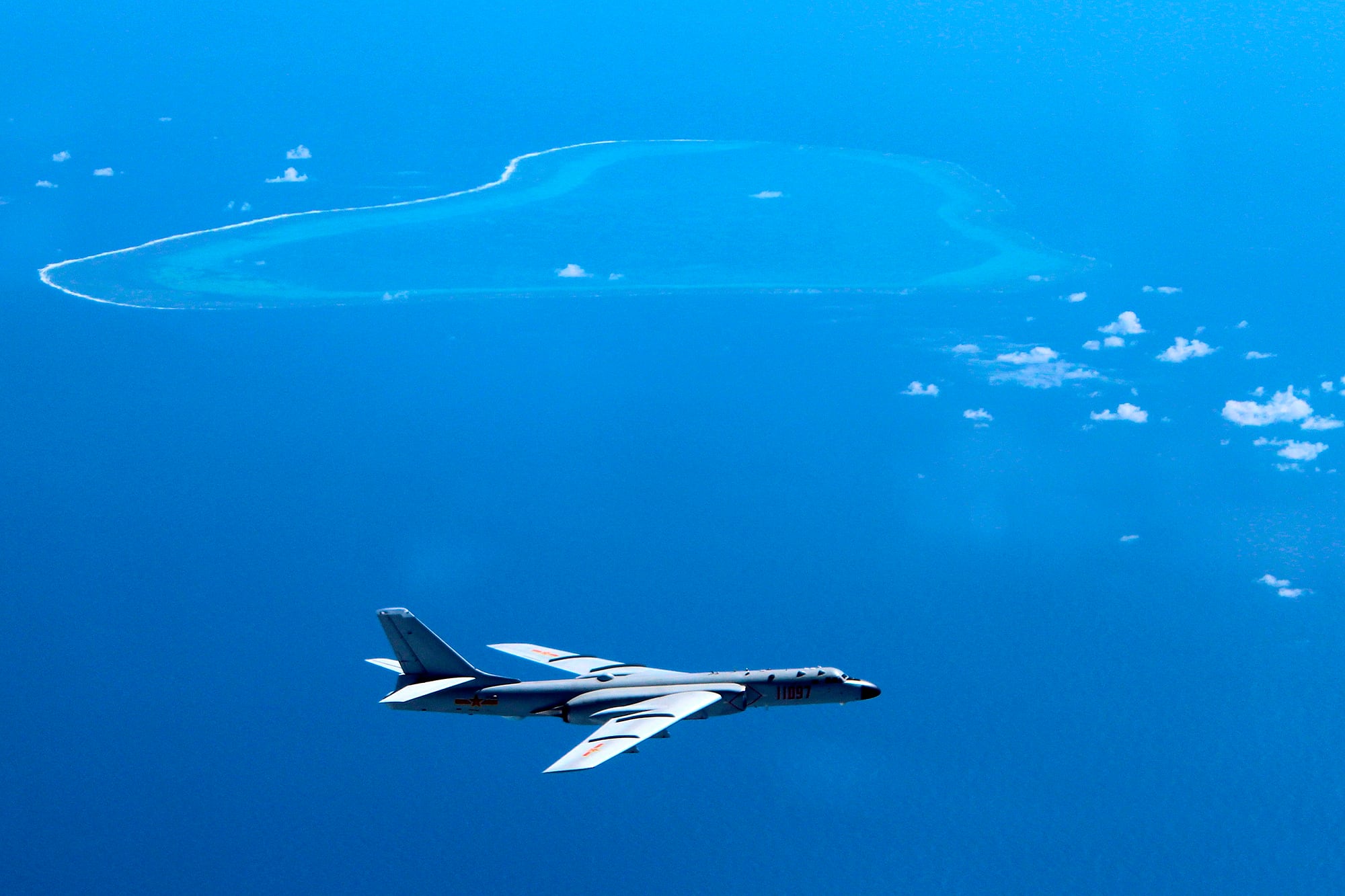WASHINGTON — The Trump administration said Wednesday it is imposing sanctions on Chinese officials responsible for Beijing’s military buildup in the South China Sea. The move is the latest salvo in the U.S. pressure campaign against China that has picked up steam ahead of November’s presidential election over a variety of contentious issues.
The State Department announced it had hit an unspecified number of Chinese officials and business executives responsible for the militarization of disputed South China Sea areas with travel bans. Immediate family members of those targeted may also be barred from travel to the United States, the department said.
At the same time, the Commerce Department said it had added 24 state-owned Chinese enterprises, some of which were on the Defense News Top 100 list this year, which ranks defense companies around the world based on their defense-related revenue.
China Electronics Technology Group Corporation — ranked 15th place with fiscal 2019 defense revenue totaling about $10.15 billion — was included in the Commerce Department’s announcement.
The U.S. government also sanctioned China Shipbuilding Group. China’s two largest shipbuilding conglomerates, China Shipbuilding Industry Company (ranked 14th place) and China State Shipbuilding Corporation (ranked 24th place), merged in November 2019 to create the massive maritime business.
The China Communications Construction Company was also part of the sanctions due to its role in constructing artificial islands through dredging operations and other activities that impacted the environment and infringed on other nations’ claims.
In a statement, Secretary of State Mike Pompeo said the travel ban would apply to Chinese individuals “responsible for, or complicit in, either the large-scale reclamation, construction, or militarization of disputed outposts in the South China Sea, or [China’s] use of coercion against Southeast Asian claimants to inhibit their access to offshore resources.”
The day after the sanctions were announced, China accused the United States of violating international law by imposing the penalties, but gave no indication of how it might retaliate.
“The relevant U.S. acts grossly interfere in China’s internal affairs, violate international law and relevant international norms, which are totally out of hegemonic logic and power politics,” Foreign Affairs Ministry spokesman Zhao Lijian said. “China will take firm measures to resolutely safeguard the legitimate rights and interests of its enterprises and individuals.”
Chinese officials frequently make such vows, although specific responses are rare.
“The relevant construction China carried out on its own territory is entirely within the scope of sovereignty and has nothing to do with militarization,” Zhao said. “There is no reason for the U.S. side to impose illegal sanctions on Chinese enterprises and individuals because of their participation in relevant domestic construction.”
Last month, Pompeo accused China of “bullying” and announced that the U.S. would not recognize nearly all of China’s maritime claims to areas in the South China Sea that are contested by its smaller neighbors, including Vietnam, the Philippines, Malaysia, Brunei and Taiwan. Beijing’s claims to these areas have been accompanied by increased military and commercial activities.
The Chinese government cannot be allowed to use the China Communications Construction Company or other state-owned businesses “as weapons to impose an expansionist agenda,” Pompeo said. “The United States will act until we see Beijing discontinue its coercive behavior in the South China Sea, and we will continue to stand with allies and partners in resisting this destabilizing activity.”
Defense News’ managing editor, Chris Martin, contributed to this report.





